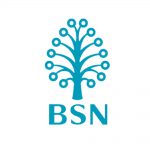Course Info
Emotional intelligence (EI) is sometimes referred to as Emotional Quotient or Emotional Literacy. Individuals with emotional intelligence are able to relate to others with compassion and empathy, have well-developed social skills, and use this emotional awareness to direct their actions and behavior. The term was coined in 1990 by psychologists John Mayer and Peter Salovey. In 1995, psychologist/journalist Daniel Goleman published the highly successful Emotional Intelligence, which built on Mayer and Salovey’s work and popularized the EI concept. The workshop attempts to equip the participants with different aspects of the emotional intelligence philosophy to promote a more productive working relationships, better outcomes, and enhanced personal satisfaction..
What Will I Learn From This Course?
Understand the concepts of Emotional Intelligence (EI) and apply them to enhance personal effectiveness at the workplace
Learn how to manage their emotions in a variety of critical situations when dealing with various levels of people
Understand the emotions of others and how to control personal reactions to them
Uncover the secrets of self-motivation and personal directions using the EI framework
Learn how to handle “difficult” people and influence others with tact and diplomacy
Target Audience
Methodology
A highly interactive and practical methodology will be utilized. Consists of seminars, group discussions, video presentations, mini case discussions, individual and group “hands-on” exercises, as well as plenty of self-reflection sessions.
Course Outline for This Programme
Module 1: About Emotional Intelligence
- What is emotional intelligence?
- Why worry about emotional intelligence?
- Emotional Intelligence and social intelligence
- The EI framework
Module 2: Emotional Intelligence Self-Assessment
- Assessing personal Emotional Quotient (EQ)
- Personal Emotional Intelligence evaluation
Module 3: Emotional Intelligence Domain
- Self-awareness
- Managing emotions
- Motivating oneself
- Empathy
- Social skills
Module 4: Self-Awareness (SA)
- Self-Awareness
- Seeing the Other Side
- Giving in Without Giving Up Life
- Positions – You and Only You Can Choose Your Mindset
Module 5: Self-Regulation/Managing Emotions (ME)
- Self-Regulation/Managing Emotions (ME)
- Find Your Self-Control
- Using Coping Thoughts
- Using Relaxation Techniques
Module 6: Self-Motivation (M)
- Self-Motivation
- The balance between optimism and pessimism
- The power of re-framing
- Goal and direction setting
Module 7: Empathy (E)
- Barriers to empathy
- Developing your empathy skills
- Using empathy-based language
- Communicating empathy to others
Module 8: Social Skills (SS)
- Elements in social skills
- Creating impact and influence
- Creating a powerful first impression
- Verbal and non-verbal aspects
Module 9: Four Skills in Emotional Intelligence
- How to accurately perceive emotions
- Use emotions to facilitate thinking
- Understand emotional meanings
- Manage emotions
Module 10: Personal Action Plan
- Self-assessment on EI skills
- Areas of development
- EI personal action plan development
Nagappan is an enthusiastic and dynamic trainer, consultant, author and motivation speaker. He has trained an extensive number of business and technical professionals, lecturers, students, and parents on a variety of areas. His personal mission is to train, educate, motivate and empower individuals, teams and organizations in achieving excellence. Nagappan’s areas of training specialty includes a wide spectrum of soft skills. He is the author of the book “The Negotiating Edge: Strategies to create a win-win outcome.”
He has more than 18 years of hands-on experience in education and training, in most of which have been spent on “people development”. He had served as the Group Training Manager for several well-diversified public-listed manufacturing and service companies in Malaysia, where his focus were on personal, professional and organizational development training. Besides that, he has also held the position of Director of Studies for a leading IT educational institution in Malaysia.
Nagappan had obtained his Bachelor of Science (BSc) in Management and Information Technology from the United States (USA) and a MBA from Charles Sturt University (Australia). In addition, he had also undergone a practitioner certification training in NLP (Neuro-Linguistic Programming), a modern communication psychology certification, in Australia. He actively uses the concepts of NLP (Neuro Linguistic Programming) and ALP (Accelerated Learning Principles) in all training programs that he conducts to enhance the learning outcomes and effectiveness among the participants.
A Certified NLP Practitioner with the IANLP (International Association of NLP, Australia), Nagappan conducts various training programs on personal, professional and organizational development throughout the Malaysia. He has conducted an extensive number in-house programs and public seminars in Malaysia.




